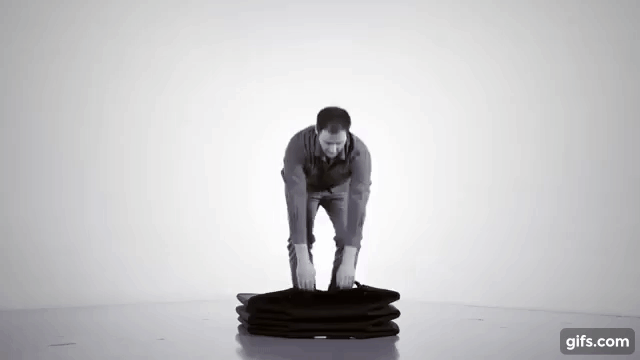Son describes ‘horror’ of finding mom’s body as Toronto killer gets life sentence in DNA cold case
Zachary Berry was just six years old when he discovered his mother’s body in a closet soon after she had been stabbed in her Toronto apartment.His “entire life changed” on March 19, 1993, when he found Barbara Brodkin, blood coming from wounds to her chest and staining the floor and walls. The little boy called 911. “It took my six-year-old mind several minutes to fully take in and understand the horror of what I was looking at,” Berry said in a victim impact statement read by the Crown on Wednesday at the sentencing of his mother’s killer, Charles Mustard. “My mother was dead, and the trauma and psychosocial effect from that night would remain with me for many years after. Her life was brutally, cruelly, and callously taken — the life of a single mother of a six-year-old child she would do anything to support.” Brodkin’s murder went unsolved for nearly 30 years until 2018, when DNA under her fingernails was linked to Mustard, an acquaintance and former teacher with a lengthy but dated criminal record. Mustard, now 68, was convicted of second-degree murder in February following a judge-alone trial. On Wednesday, Superior Court Justice Brian O’Marra sentenced him to life in prison with no chance at parole for 15 years, as Mustard maintained his innocence from the prisoner’s box. “The number of years that a judge imposes for second-degree murder in any case cannot purport to heal the wounds, to heal and address the pain suffered by those who knew and loved Barbara,” O’Marra said. Describing Brodkin as a “fine and respectable woman,” Mustard — at times becoming emotional as he appeared to read from a prepared statement — said he was and remains saddened by her death. “I’m not the perpetrator of Ms. Brodkin’s death,” he said. “I’ll be killed in jail. I’m not afraid to die. I’m not afraid to live. I’m at ease because I know I’m not guilty of Ms. Brodkin’s death. I am innocent of this tragic murder. I am innocent.” Brodkin, 41, sold small amounts of pot, and Mustard was a customer. The Crown’s theory was that the motive for her killing was robbery. Mustard testified in his own defence at trial. In convicting him, O’Marra rejected his assertion that his DNA ended up under Brodkin’s fingernails because the two had shared a joint slathered with his saliva. O’Marra also rejected the defence theory that Brodkin’s ex-husband — who was violent and had threatened her with death — was the real killer. The pair had been fighting over custody of their son, and the man became the prime suspect for Brodkin’s murder. But police later substantiated his alibi, and he was never charged. He died in 2009. Mustard “had the luxury of living undetected for almost 25 years,” Crown attorney Karen Simone said on Wednesday, asking for a parole ineligibility period of 18 to 20 years. She said Brodkin fought for her life, which helped to later solve her murder through the DNA under her fingernails. “Mr. Mustard is cold and callous and dangerous,” she said. Mustard, who went to private school and whose father was a prominent surgeon, grew up in a “rather privileged environment,” defence lawyer Bob Richardson said. But at home things were very different.Both his parents had substance use issues with alcohol. His mother died by suicide, and his father abused him. Mustard also has two children with whom he has limited, if any, contact, Richardson said.He had asked for a parole ineligibility period of 12 to 14 years, arguing that Mustard’s age and health are mitigating factors. “He’s going to be 80-82 by the time he even becomes eligible for parole if he’s able to live that long,” Richardson said. Jacques Gallant is a Toronto-based reporter covering courts, justice and legal affairs for the Star. Follow him on Twitter: @JacquesGallant


Zachary Berry was just six years old when he discovered his mother’s body in a closet soon after she had been stabbed in her Toronto apartment.
His “entire life changed” on March 19, 1993, when he found Barbara Brodkin, blood coming from wounds to her chest and staining the floor and walls. The little boy called 911.
“It took my six-year-old mind several minutes to fully take in and understand the horror of what I was looking at,” Berry said in a victim impact statement read by the Crown on Wednesday at the sentencing of his mother’s killer, Charles Mustard.
“My mother was dead, and the trauma and psychosocial effect from that night would remain with me for many years after. Her life was brutally, cruelly, and callously taken — the life of a single mother of a six-year-old child she would do anything to support.”
Brodkin’s murder went unsolved for nearly 30 years until 2018, when DNA under her fingernails was linked to Mustard, an acquaintance and former teacher with a lengthy but dated criminal record.
Mustard, now 68, was convicted of second-degree murder in February following a judge-alone trial. On Wednesday, Superior Court Justice Brian O’Marra sentenced him to life in prison with no chance at parole for 15 years, as Mustard maintained his innocence from the prisoner’s box.
“The number of years that a judge imposes for second-degree murder in any case cannot purport to heal the wounds, to heal and address the pain suffered by those who knew and loved Barbara,” O’Marra said.
Describing Brodkin as a “fine and respectable woman,” Mustard — at times becoming emotional as he appeared to read from a prepared statement — said he was and remains saddened by her death.
“I’m not the perpetrator of Ms. Brodkin’s death,” he said. “I’ll be killed in jail. I’m not afraid to die. I’m not afraid to live. I’m at ease because I know I’m not guilty of Ms. Brodkin’s death. I am innocent of this tragic murder. I am innocent.”
Brodkin, 41, sold small amounts of pot, and Mustard was a customer. The Crown’s theory was that the motive for her killing was robbery.
Mustard testified in his own defence at trial. In convicting him, O’Marra rejected his assertion that his DNA ended up under Brodkin’s fingernails because the two had shared a joint slathered with his saliva.
O’Marra also rejected the defence theory that Brodkin’s ex-husband — who was violent and had threatened her with death — was the real killer. The pair had been fighting over custody of their son, and the man became the prime suspect for Brodkin’s murder.
But police later substantiated his alibi, and he was never charged. He died in 2009.
Mustard “had the luxury of living undetected for almost 25 years,” Crown attorney Karen Simone said on Wednesday, asking for a parole ineligibility period of 18 to 20 years. She said Brodkin fought for her life, which helped to later solve her murder through the DNA under her fingernails.
“Mr. Mustard is cold and callous and dangerous,” she said.
Mustard, who went to private school and whose father was a prominent surgeon, grew up in a “rather privileged environment,” defence lawyer Bob Richardson said. But at home things were very different.
Both his parents had substance use issues with alcohol. His mother died by suicide, and his father abused him. Mustard also has two children with whom he has limited, if any, contact, Richardson said.
He had asked for a parole ineligibility period of 12 to 14 years, arguing that Mustard’s age and health are mitigating factors. “He’s going to be 80-82 by the time he even becomes eligible for parole if he’s able to live that long,” Richardson said.
Jacques Gallant is a Toronto-based reporter covering courts, justice and legal affairs for the Star. Follow him on Twitter: @JacquesGallant


















.jpg?#)
:quality(85):upscale()/2024/09/09/785/n/1922283/901e710666df358b373de2.40207443_.jpg)
